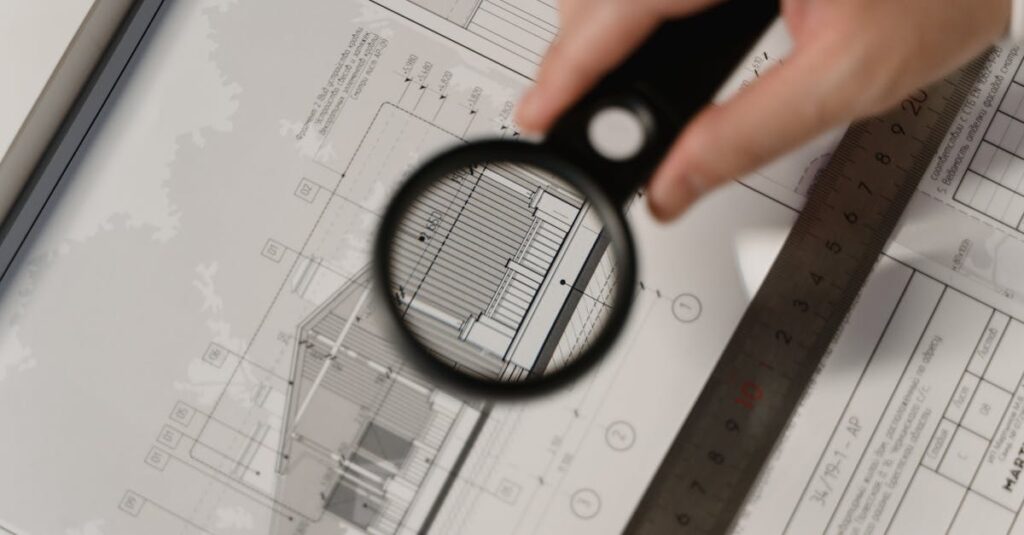I’ve seen firsthand how a Master’s in Technical Writing can transform a good communicator into an exceptional one. This specialized degree equips professionals with advanced skills in documentation, content strategy and digital communication – essential elements in today’s tech-driven world.
As technology continues to evolve, the demand for skilled technical writers has never been higher. Whether you’re looking to advance your career or transition into this growing field, a master’s degree can open doors to leadership roles in industries ranging from healthcare and IT to aerospace and manufacturing. I’ll guide you through everything you need to know about pursuing this valuable credential, from program requirements to career prospects.
Key Takeaways
- A Master’s in Technical Writing is a specialized graduate degree that typically takes 18-24 months to complete, requiring 36-42 credit hours of coursework focused on advanced documentation and professional communication skills.
- The field offers strong career growth with a projected 12% increase through 2030, with opportunities spanning industries like software development, healthcare, manufacturing, and aerospace.
- Technical writing master’s graduates can expect competitive salaries ranging from $65,000 (entry-level) to $130,000+ (senior-level), plus benefits like bonuses, stock options, and remote work opportunities.
- Essential skills developed include document structuring, audience analysis, style guide implementation, and proficiency with specialized tools like MadCap Flare, DITA, and API documentation platforms.
- Leading universities offer flexible program formats, including online, on-campus, and hybrid options, with requirements typically including a 3.0 GPA, GRE scores, and a technical writing portfolio.
Masters in Technical Writing
A Master’s in Technical Writing is a specialized graduate degree that focuses on advanced documentation skills professional communication. The program combines theoretical knowledge with practical applications to create clear technical content for diverse audiences.
Common Course Requirements
Technical writing master’s programs include these core components:
- Advanced Documentation Methods covering structured authoring XML content management
- Digital Media Production focusing on multimedia integration video tutorials
- Information Architecture principles including user experience design content organization
- Research Methodology emphasizing data analysis quantitative methods
- Technical Editing incorporating style guides document standardization
- Project Management specifically for documentation team coordination
- Content Strategy Development for multichannel distribution
- Usability Testing methods for documentation effectiveness
Program Formats and Duration
Master’s programs in technical writing offer these flexible formats:
- Full-time campus programs completed in 2 years
- Part-time options extending 3-4 years
- Online degrees with asynchronous learning
- Hybrid formats combining online virtual classes with in-person workshops
- Accelerated 18-month programs for experienced professionals
| Program Type | Duration | Credit Hours |
|---|---|---|
| Full-time | 24 months | 36-42 |
| Part-time | 36-48 months | 36-42 |
| Accelerated | 18 months | 30-36 |
| Online/Hybrid | 24-36 months | 36-42 |
Most programs require 36-42 credit hours including a capstone project thesis. The curriculum integrates practical assignments with theoretical foundations through hands-on documentation projects portfolio development.
Career Opportunities with a Technical Writing Master’s
Technical writing master’s graduates access diverse career paths across multiple industries with consistently growing employment prospects. The advanced skills developed through this degree create opportunities in both traditional technical writing roles and emerging digital communication positions.
Industry Demand and Growth
The technical writing field demonstrates strong growth potential with a projected 12% increase in employment through 2030, according to the U.S. Bureau of Labor Statistics. Key industries actively recruiting technical writing professionals include:
- Software Development: Creating user documentation API guides system specifications
- Healthcare: Producing medical documentation regulatory compliance materials patient education resources
- Manufacturing: Developing product manuals safety protocols maintenance guides
- Aerospace/Defense: Writing technical specifications operational procedures security documentation
- Financial Services: Creating process documentation compliance materials user guides
Current positions for master’s degree holders include:
- Senior Technical Writer
- Documentation Manager
- Content Strategy Director
- Information Architect
- Technical Communications Specialist
Salary Potential
Technical writing master’s graduates command competitive salaries based on role experience industry. Here’s a breakdown of median annual salaries:
| Position | Entry-Level | Mid-Career | Senior-Level |
|---|---|---|---|
| Technical Writer | $65,000 | $85,000 | $110,000 |
| Documentation Manager | $82,000 | $98,000 | $125,000 |
| Content Strategist | $75,000 | $95,000 | $120,000 |
| Information Architect | $80,000 | $100,000 | $130,000 |
- Annual bonuses ranging from $5,000-$15,000
- Stock options in technology companies
- Professional development allowances
- Remote work opportunities
- Comprehensive benefits packages
Top Universities Offering Technical Writing Programs
Leading academic institutions provide comprehensive Master’s programs in Technical Writing, combining advanced theoretical knowledge with practical applications. Here’s a detailed look at program formats and requirements.
Online vs On-Campus Programs
Online programs offer flexible scheduling through asynchronous learning platforms at institutions like Johns Hopkins University, University of Central Florida (UCF) & Carnegie Mellon University. On-campus programs at Massachusetts Institute of Technology (MIT), University of Washington & University of Minnesota-Twin Cities provide hands-on workshops, direct faculty interaction & collaborative project opportunities.
| Program Type | Key Features | Notable Universities |
|---|---|---|
| Online | Asynchronous learning, 24/7 access, virtual collaboration | Johns Hopkins, UCF, Carnegie Mellon |
| On-Campus | In-person workshops, lab access, face-to-face networking | MIT, UW, UMN-Twin Cities |
- Bachelor’s degree with a minimum 3.0 GPA
- GRE scores (required by 60% of programs)
- Writing portfolio with 3-5 technical documents
- Professional resume highlighting relevant experience
- Letters of recommendation (typically 2-3)
- Statement of purpose outlining career goals
- English proficiency scores for international students (TOEFL: 100+ or IELTS: 7.0+)
| Required Document | Submission Format |
|---|---|
| Writing Portfolio | PDF or website link |
| Transcripts | Official sealed copy |
| Test Scores | Direct from testing agency |
| Recommendations | Electronic submission |
Developing Essential Technical Writing Skills
Technical writing skills development combines advanced writing techniques with technical expertise to create clear specialized documentation. This comprehensive skill set forms the foundation for successful technical communication across industries.
Writing and Communication
Technical writing mastery requires proficiency in multiple communication areas:
- Document structuring techniques for creating user manuals, API documentation & standard operating procedures
- Audience analysis methods to tailor content complexity levels & terminology use
- Style guide implementation for maintaining consistency across documentation
- Information architecture principles for organizing complex technical content
- Clear writing practices focusing on accuracy, brevity & clarity
- Collaborative writing strategies for team documentation projects
- Visual communication skills for creating diagrams, charts & infographics
Technology and Tools
Modern technical writing relies on specialized software & platforms:
| Tool Category | Common Examples | Primary Use Cases |
|---|---|---|
| Documentation | MadCap Flare, RoboHelp | Single-source publishing |
| Version Control | Git, SVN | Content management |
| API Documentation | Swagger, ReadTheDocs | API reference materials |
| Content Management | DITA, DocBook | Structured authoring |
| Graphics | Adobe Creative Suite, Snagit | Visual content creation |
- XML & HTML markup languages for web documentation
- Content management systems for document organization
- Version control software for tracking changes
- Documentation generators for API reference materials
- Screen capture & image editing tools
- Collaboration platforms for team projects
- Static site generators for documentation hosting
Tips for Choosing the Right Program
Selecting an ideal Master’s in Technical Writing program requires careful evaluation of multiple factors beyond basic curriculum requirements. These considerations directly impact career prospects and professional development opportunities.
Program Accreditation
Regional accreditation from organizations like SACSCOC, MSCHE or HLC validates a program’s academic standards and credibility. Programs with additional certification from professional bodies such as the Society for Technical Communication (STC) demonstrate enhanced industry alignment and curriculum quality. I recommend checking the Council for Higher Education Accreditation database to verify accreditation status before committing to any program.
- Corporate advisory boards guiding curriculum development
- Internship programs with major tech companies (Google, Microsoft, Adobe)
- Guest lectures from industry professionals
- Career fairs exclusive to program participants
- Mentorship opportunities with experienced technical writers
- Access to job placement networks
- Collaborative projects with actual industry clients
| Industry Connection Type | Student Benefit |
|---|---|
| Corporate internships | Direct work experience |
| Advisory board input | Current industry-aligned skills |
| Guest speaker series | Professional networking |
| Career fairs | Immediate job opportunities |
| Mentorship programs | Career guidance |
Top Programs & Salary Outlook
A Master’s in Technical Writing opens doors to rewarding career opportunities and professional growth in today’s digital landscape. I’ve shown how this advanced degree equips professionals with specialized skills that are increasingly valuable across multiple industries.
With competitive salaries strong job prospects and the flexibility to choose from various program formats it’s clear why this degree has become an attractive option for career advancement. The combination of technical expertise writing proficiency and strategic thinking makes graduates highly marketable in our technology-driven world.
I believe investing in a Master’s in Technical Writing is a strategic choice for those looking to excel in professional communication and documentation. Whether you’re interested in software development healthcare or manufacturing this degree will prepare you for success in an evolving digital landscape.



